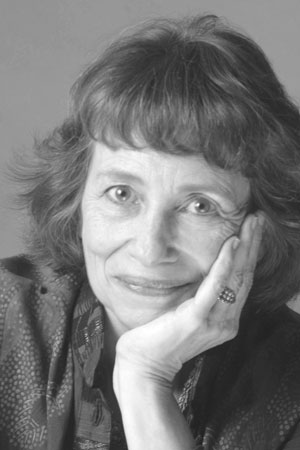By Tracy Montgomery
In casual, comfortable, conversational style she enthralled not only the children who had come to hear her stories but their parents and many adults who were just passing by. When she finished, the adults in the crowd far outnumbered the kids.
Diane Wolkstein, who former Mayor Lindsay called the city’s “official storyteller,” started the storytelling program in Central Park. She has spent the past three decades touring the world performing, writing and teaching about mythology and folklore.
In time for the upcoming celebration of the Jewish High Holy days, Wolkstein will be telling Jewish stories at 11 a.m. on Sept. 20 in Rector Park on Rector Pl. just west of South End Ave. in Battery Park City. The event is free. The stories are from her latest book, “Treasures of the Heart: Holiday Stories that Reveal the Soul of Judaism.”
Wolkstein began telling stories from the Bible for the Sunday school at the Temple Copernic in Paris in 1965 to pay for pantomime classes. She discovered she loved storytelling the best of all her many odd jobs.
“It didn’t exist as an art form back then and I didn’t know that you could earn a living doing it but I had the good fortune to cling to what I loved and I’ve been doing it ever since,” said Wolkstein.
Storytelling and pantomime might not seem to be compatible, but Wolkstein said it was that combination that led her to an important discovery.
“The combination of storytelling and silence is important because it allows the soul to open up and both the listener and the teller have an experience.”
Although Wolkstein started her career telling stories from the Bible, her career has mined the richness of folklore and mythology from around the world. Her previous works have included stories from Russia, Laos, Japan and Haiti, to name a few.
That day in Central Park, Wolkstein told stories from Haiti. Using various voices and sounds along with sweeping hand gestures, she seemed to go inside the story and inhabit it. Her face was taken over by each of the characters in the story with unique expressions that made the listener feel as if they were hearing directly from the character. Her loose dress hung by thin straps from her shoulders straight to the ground making her appear to flow and glide across the stage.
The audience, both young and old, sat on the edges of their seats, eagerly participating when called upon to sing, dance or shout. Wolkstein says something very different happens when a story is told rather than read.
“Storytelling is the opening of both the mind and the heart,” said Wolkstein. “The listener follows and identifies with the protagonist and when a story is told there is a stronger identification because they are able to get inside and feel and experience the story.”
She had expected to work on “Treasures” for two years, but in the end it took her eight years to complete.
“I realized that I needed to learn Hebrew well enough to understand the literal story and the commentary that had been written about the story,” said Wolkstein. “Only then did I feel qualified to let my imagination go in redefining the complete stories. There is a lot of work you must do before you tell or write a story.”
The book combines stories traditionally read on Jewish holidays with the related oral legends and teachings, and integrates those parts into a new version of the original story for the modern age.
“Generally, only a fragment of the story is told and now I am giving the whole story,” Wolkstein said. “The qualities and values that are revered in Judaism are brought out in the stories – caring and loving others, responsibility for the community, and a constant sense of discussion and questioning.”
She will be telling several stories at Rector Park, including “Joseph: The Meaning of Dreams is with God,” “Jonah: The Sea Stood Still” and “Solomon and the Demon King.”
The story of Solomon has a particularly poignant message, Wolkstein said. The story conveys an important message that when people stop caring for each other, they lose everything, she said. “This quote is the essence of the story: ‘The Creator is everywhere, so keep your heart open, for who knows who you are to meet or what you are to learn.’ ” said Wolkstein.
The role of women is also re-examined in Wolkstein’s retelling of these stories. She combines the traditional versions of the story from the Torah and uses the oral legends to bring out previously unseen women.
“These truths about women are buried in the oral legend, and I weave them into the text,” Wolkstein said. “It is the stories of real women, not innocent girls, who fight and struggle with God and who truly are great models for modern women.”
Wolkstein said the stories will not only entertain listeners and readers and enrich existing tradition, but will hopefully challenge the listeners to think.
“Many of these stories end with a question which makes us think and feel in a broader and fuller way,” Wolkstein said. “These stories are a parable for our times and are more important now, because stories are what connect us.
Reader Services































